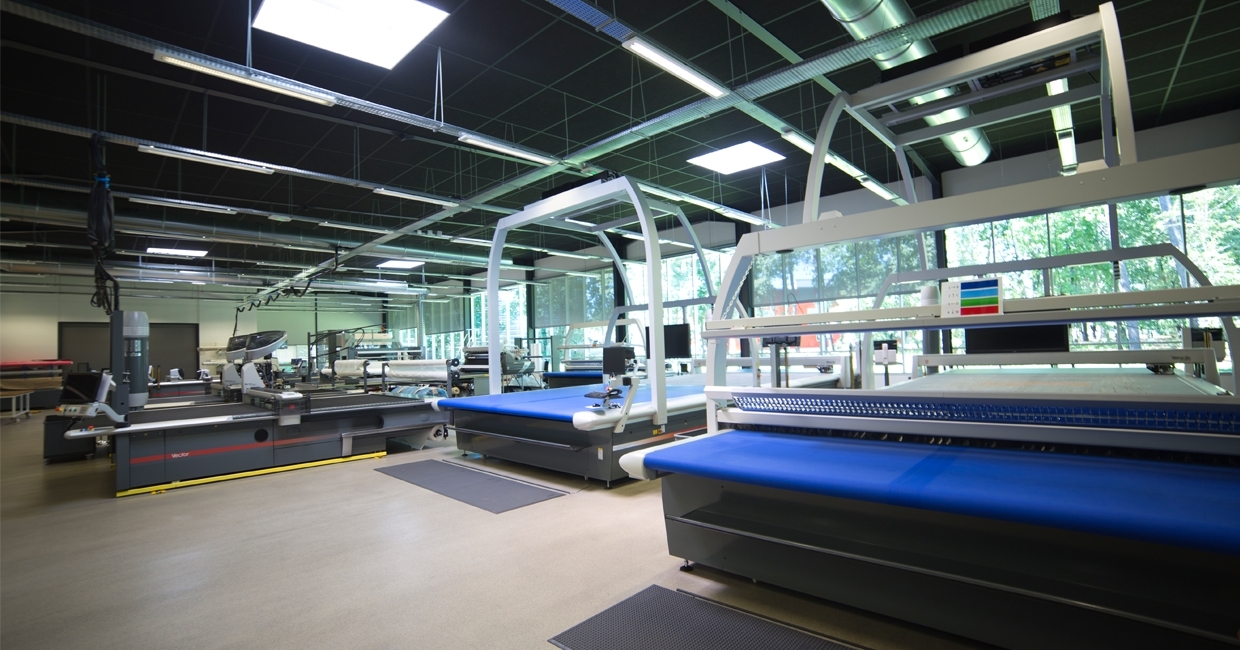Richard Jessup, sales director at Lectra – a leading provider of integrated solutions to the upholstered furniture industry, covering design, product development and automated cutting – talks Brexit, British manufacture and the importance of the Manufacturing Guild Mark.
Prior to the Brexit vote, what changes have you seen in British furniture manufacturing over the last few years?
In recent years, the British furniture market has become more competitive. We have seen a move towards a demand for greater choice in design, style and fabric, and the more conventional furniture makers are often becoming more design-led in order to win business.
We also are seeing change in the market that is driven by the habits of the Millennials, the new wave of furniture consumers. These are the guys that were born with a smartphone in their hands and who require more choice and more customisation but at a price point lower than ever before. To compound this, they are not prepared to wait – they want it now!
Within this competitive landscape and with the increasing pressures of the Millennials, furniture manufacturers have to be more agile to meet demands, whilst at the same time focussing on reducing cost but not at the risk of quality.
Have you seen a change in attitudes since Brexit?
There is a degree of uncertainty about what Brexit means for the industry. Companies can think of Brexit as an opportunity or a threat. Forward thinking companies are looking at areas where they can be more efficient so that they are ready to change how they operate in response to the market.
Take Godfrey Syrett for example. They design and manufacture innovative furniture solutions for a broad array of markets, including education, office and healthcare.
Godfrey Syrett remain optimistic about the situation, so much so that Mark Dixon, recently-appointed executive chairman and CEO, has raised Godfrey Syrett’s growth challenge from £40m to £50m by 2020.
He says: “We have every confidence that the sector will thrive post-Brexit. We believe it is important for manufacturers to invest in automation technologies in order to update current processes and remain profitable, as well as investing in a skilled workforce who are ready to adopt these new practices. Godfrey Syrett have invested over £1.5m in technology in recent years in order to increase our production capacity, shorten lead times, reduce waste and fulfil an increasing volume of orders.”
Have you had any feedback from other European manufacturers about the impact of Brexit on the UK market?
The furniture markets are becoming more localised as lead times are squeezed by the consumer. European manufacturers have less of a presence in the UK as lead time to the customer becomes more important. This is an opportunity for UK manufacturers to dominate in their domestic territory. The fluctuation in exchange rates now discourages European manufacturers from supplying to the UK.
What do you believe are the most important areas of focus for British manufacturing post-Brexit?
British manufacturers need to seek out the new trends and focus on areas of growth. In the office furniture sector for example, we are seeing a swing towards upholstered seating, and away from task seating that we recognise as traditional for this sector. This is based on the habits of today’s office workers, being more collaborative and connected.
In all sectors of the furniture market, UK manufacturers need to be ready for change. In addition to this the industry needs to invest in technology solutions to become more efficient, flexible and productive to shorten lead times and maximise profits.
Lectra is also the key sponsor of the Manufacturing Guild Mark – how important is this award in recognising excellence in UK manufacturing?
The Manufacturing Guild Mark is a mark of excellence that all manufacturers should aspire to achieve. Companies with a Manufacturing Guild Mark can be sure that they have the highest standards in their manufacturing operations that will help them to be flexible and agile in the future, responding to the ever-changing demands of the market.
For the customer it offers a level of confidence in their decision making as the Manufacturing Guild Mark, awarded via a comprehensive independent audit, sets apart the top manufacturers in Britain.
Do you foresee a trend in consumers supporting products made by UK manufacturers in the wake of Brexit?
We are already seeing that ‘Made in Britain’ is becoming more important to consumers. They want to make informed decisions about their purchases, and part of that decision is often based on sourcing local products. UK manufacturers should continue to fly the flag for home-grown products and not underestimate the importance of this in the consumers’ mind.
Companies can use this as a differentiator over products made overseas, but only when they are sure that they are fully competitive on choice, price point, lead time and quality. Agility and excellence in manufacturing has a big part to play in this.








